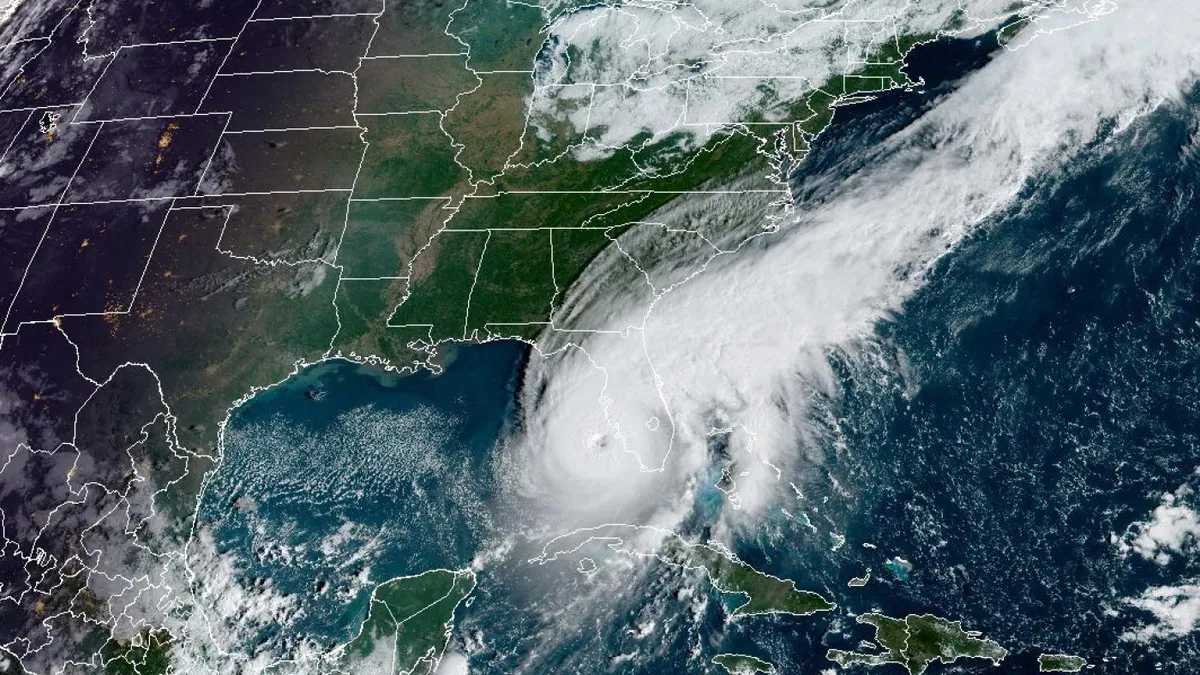
The Trump administration's recent draft budget proposal indicates significant cuts to the National Oceanic and Atmospheric Administration (NOAA), threatening the agency's crucial research and operational capabilities. According to NPR, the proposed budget for 2026 suggests a staggering reduction of over 25% from NOAA's current budget of approximately $6 billion. This proposal, which requires Congressional approval, is expected to have severe implications for the agency's ongoing work in research, fisheries services, and climate monitoring.
The draft budget outlines drastic cuts to NOAA's Office of Oceanic and Atmospheric Research (OAR), proposing to eliminate it entirely and slashing its budget by nearly 75%. This would effectively halt funding for critical research initiatives focused on climate and weather, endangering decades of scientific progress. Craig McLean, a former director of OAR, emphasized that these cuts could regress the scientific foundation of NOAA to levels reminiscent of the 1950s, severely undermining the agency’s ability to provide accurate weather forecasts and climate research.
The proposed budget also includes a nearly 30% reduction in funding for the National Marine Fisheries Service, which plays a vital role in managing the nation's ocean fisheries. This reduction would not only impact staffing levels but also shift the Fisheries Service to the U.S. Fish and Wildlife Service, further complicating operational efficiency. The remaining staff would be directed to prioritize initiatives aimed at expanding American energy production, potentially at the expense of sustainable fisheries management.
Alongside cuts to personnel and operations, the budget proposal also seeks to reduce investments in NOAA's advanced satellite technology by 44%. Currently, NOAA operates five geostationary satellites that are essential for gathering data critical to weather forecasting and climate research. The ongoing development of next-generation satellites, set to launch by 2032, is now jeopardized, raising concerns among NOAA officials regarding the future of key scientific advancements.
These proposed cuts have raised alarms among legislators and experts alike. Rep. Zoe Lofgren of California, the leading Democrat on the House Science, Space, and Technology Committee, remarked that NOAA's work is essential for life-saving weather research and services. She warned that this budget could leave NOAA "hollowed out," severely impacting its ability to protect the American public from natural disasters.
The draft budget aligns closely with recommendations from Project 2025, a conservative policy framework developed by the Heritage Foundation. This initiative advocates for the downsizing of NOAA, suggesting the agency be restructured to retain only the most recognizable services, such as the National Weather Service, while dismantling many of its other critical offices. Proposed changes echo sentiments found in Project 2025, including suggestions to limit NOAA's climate science research.
In recent weeks, NOAA has faced significant staffing disruptions, including the firing of hundreds of employees. This turmoil comes after a Supreme Court ruling allowed the Trump administration to proceed with layoffs, further complicating the agency's already strained resources. Experts like Andy Hazelton, a hurricane specialist, warn that these staffing cuts, combined with reduced research budgets, could regress hurricane forecasting capabilities by decades, ultimately compromising public safety.
NOAA's responsibilities extend beyond weather forecasting to include the management of vital fishery resources such as tuna and cod. The agency's scientists are tasked with determining sustainable catch limits to ensure the long-term viability of fish populations. Disruptions in fisheries operations can lead to delays in fishing seasons and reduced quotas, affecting both the industry and consumers. Furthermore, NOAA plays a crucial role in maintaining coastal maps, which are essential for safe maritime activities.
As discussions around the budget continue, the final decisions will significantly influence NOAA's capacity to fulfill its mission of safeguarding the American public through science and research. The implications of these proposed budget cuts could be felt for years to come, impacting everything from weather forecasting to the management of our natural resources.